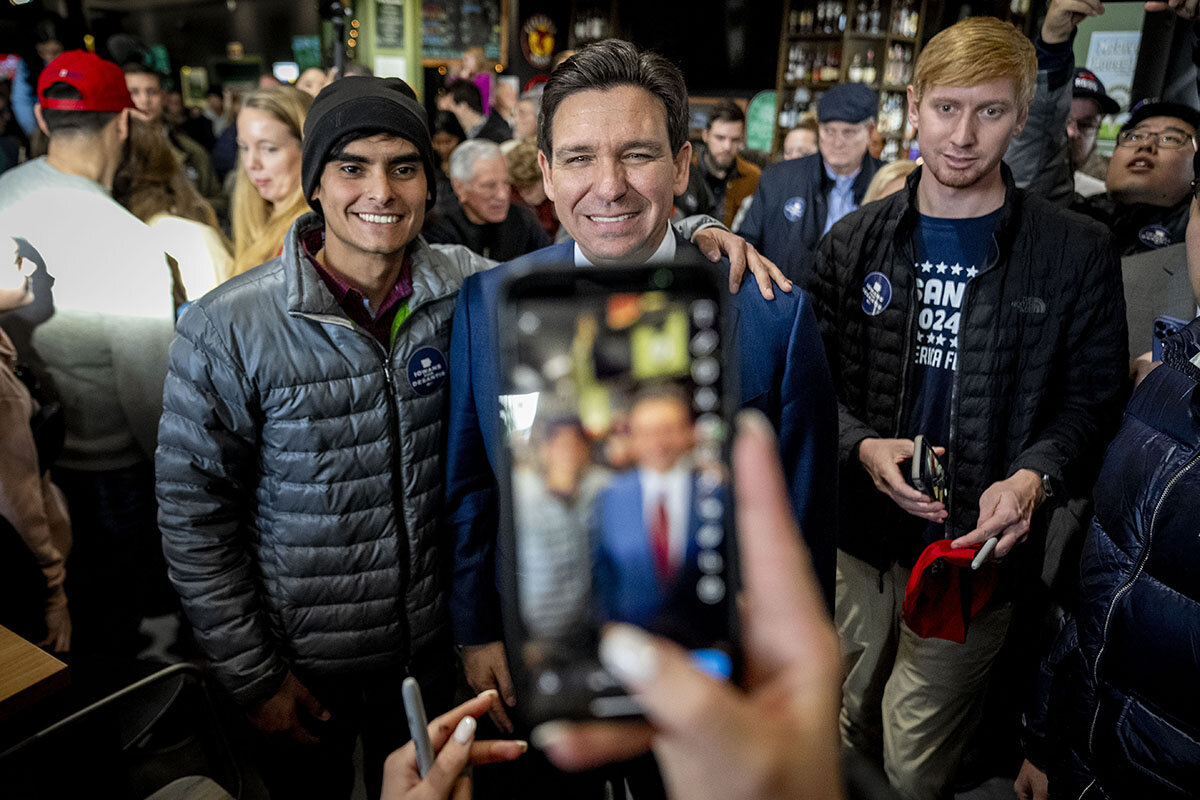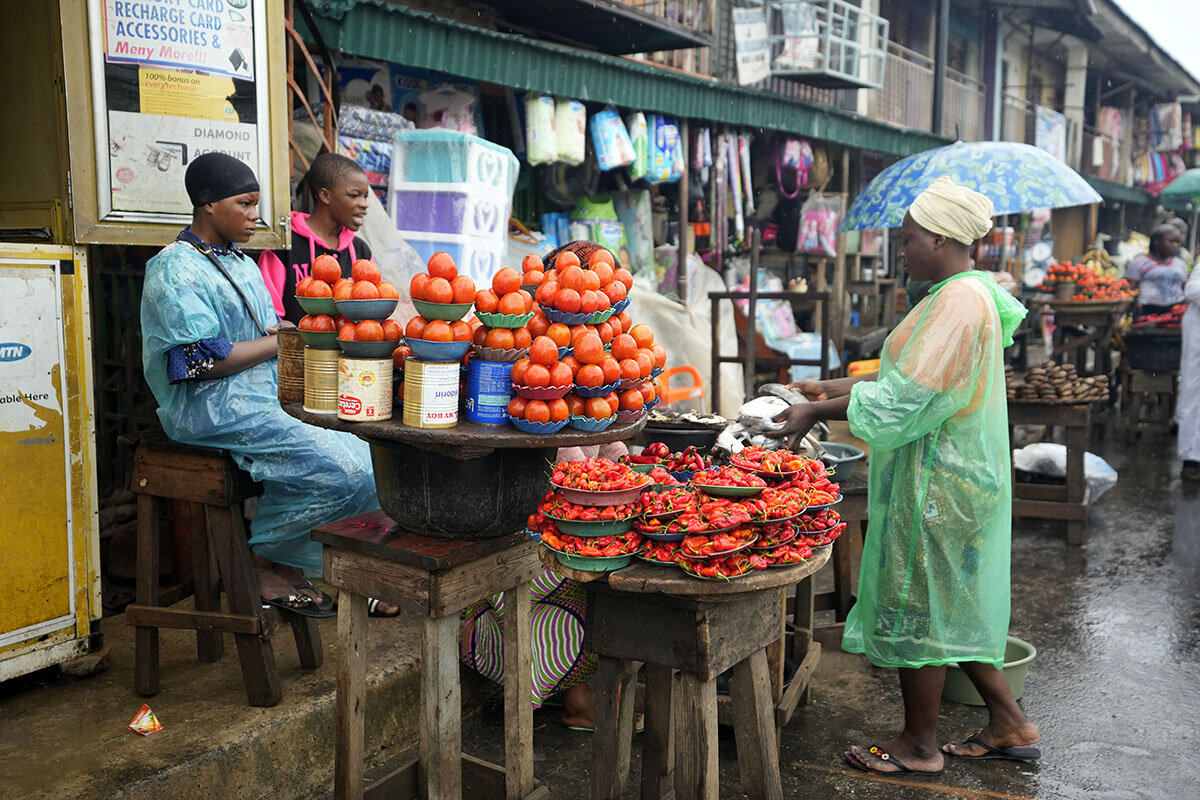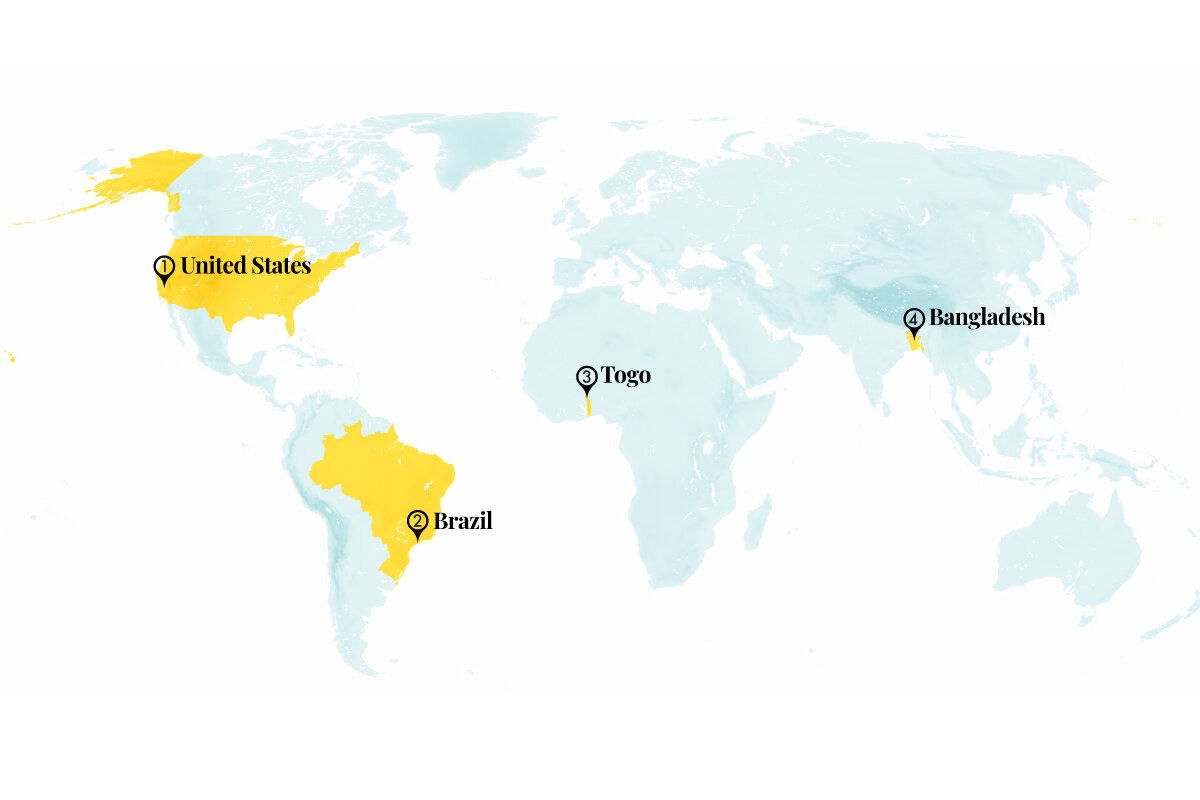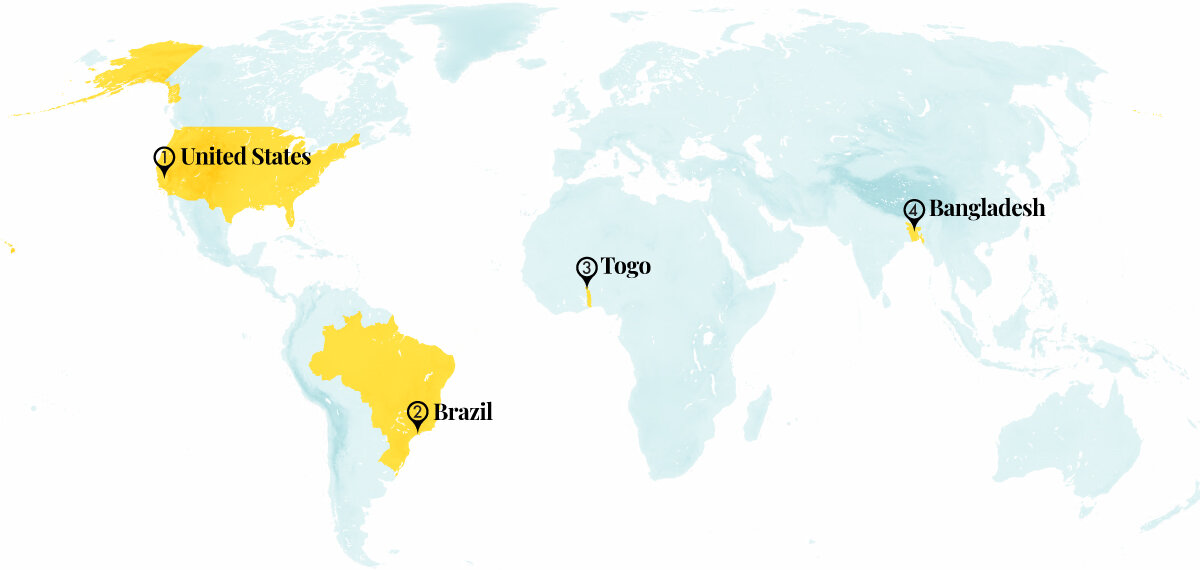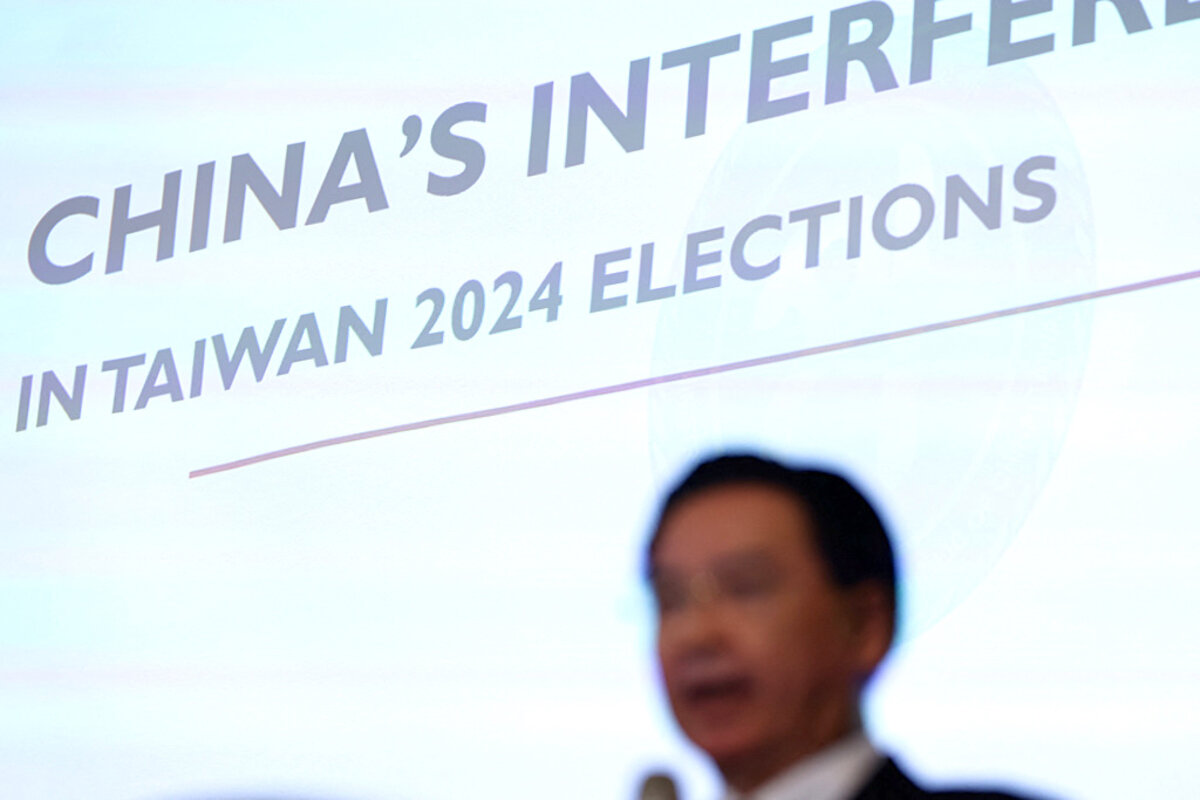Donald Trump’s historic lead is the dominant narrative in the GOP presidential race. But Iowa caucuses are an unpredictable process, and even strong second-place finishers can gain momentum there.

Why is Christian Science in our name?
Our name is about honesty. The Monitor is owned by The Christian Science Church, and we’ve always been transparent about that.
The Church publishes the Monitor because it sees good journalism as vital to progress in the world. Since 1908, we’ve aimed “to injure no man, but to bless all mankind,” as our founder, Mary Baker Eddy, put it.
Here, you’ll find award-winning journalism not driven by commercial influences – a news organization that takes seriously its mission to uplift the world by seeking solutions and finding reasons for credible hope.
Explore values journalism About usMonitor Daily Podcast
- Follow us:
- Apple Podcasts
- Spotify
- RSS Feed
- Download
 Mark Sappenfield
Mark Sappenfield
Monitor subscriber Sam Daley-Harris makes a career of telling people they have more power than they think. We talked about that recently in connection with the American presidential election and the launch of his book “Reclaiming Our Democracy: Every Citizen’s Guide to Transformational Advocacy.”
Politics seems filled with a sense of impotence. But that’s wrong, Sam says. We just need to build small wins – contacting a representative, writing a letter to a newspaper. Connecting with groups that teach this kind of advocacy helps. The need is to overcome instant gratification and build momentum, commitment, and agency.
The beginning of real change is “to see yourself differently,” Sam says. “You can do things you thought you couldn’t do.”
Already a subscriber? Log in
Help fund Monitor journalism for $11/ month
Monitor journalism changes lives because we open that too-small box that most people think they live in. We believe news can and should expand a sense of identity and possibility beyond narrow conventional expectations.
Our work isn't possible without your support.
Today’s stories
And why we wrote them
( 8 min. read )
Today’s news briefs
• Hottest year on record: The European Union’s Copernicus Climate Change Service says 2023 was the warmest yet. Since June, every month has been the hottest on record compared with the corresponding month in previous years, dating back to 1850.
• France’s youngest-ever prime minister: President Emmanuel Macron chooses Gabriel Attal, who is 34 and openly gay. Mr. Macron is seeking a fresh start amid growing political pressure from the far right.
• Trump in court: An appeals court is hearing arguments on whether former President Donald Trump is immune from prosecution on charges he plotted to overturn the results of the 2020 election.
• New labor rule: The Biden administration enacts a new rule that could bolster many workers in the United States by preventing them from being classified as independent contractors. Business groups say the rule could threaten worker flexibility.
( 5 min. read )
New York is mobilizing to connect migrants with open jobs in an effort to ease the financial crunch of supporting thousands of newcomers in government care.
( 4 min. read )
The latest round of strikes affecting the United Kingdom’s National Health Service is testing the limits of the public’s support for NHS staff, but young doctors feel they have few other options.
( 4 min. read )
Gender discrimination and patchy banking services have locked millions of Nigerian women entrepreneurs out of the formal banking sector. Amid record inflation, many are harnessing the power of technology to bridge the financial gap.
Points of Progress
( 5 min. read )
Homegrown solutions abound in this week’s progress roundup. In Brazil, municipal nurseries bypass profitable exotics to prioritize native trees and in Togo, hairdressers are being trained to provide counseling for clients.
The Monitor's View
( 2 min. read )
In 2024, about half of the world’s population will vote in a near-record number of elections. One in particular deserves attention – as a model in trust-building. On Jan. 13, a new president will be elected in Taiwan, where citizens have been enlisted to fact-check suspicious news reports, especially ones spread by China.
China’s ruling Communist Party is trying harder than ever to sway the outcome of Taiwan’s election and break the morale of the Taiwanese in maintaining the island’s independence. By most accounts, truth seekers in Taiwan are winning against China’s massive disinformation campaign.
“In the face of such challenges, Taiwan’s civil society shines bright,” stated Moira Whelan, director of the democracy and technology team at the National Democratic Institute in Washington, in a blog post.
The lesson for other democracies is to rely on the integrity of each voter to discern claims on social media about politicians. Taiwanese voters, for example, can now use a chatbot created by civil society database Cofacts to check the accuracy of reports. The new service, open to anyone via a popular messaging app, helps counter China’s propaganda machine, which is now relying on the manipulative power of artificial intelligence.
Many fact-checking services in Taiwan are run by civil society. “We equip our people with the knowledge and tools to refute and report false and misleading information,” said President Tsai Ing-wen, who is finishing two terms since being elected in 2016.
Audrey Tang, the nation’s digital minister, describes these popular defenses against cyber mischief as “nerd immunity,” a play on herd immunity. “That is the main battlefield: The fear, uncertainty, doubt is designed to keep us up at night so we don’t respond to novel threats with novel defenses,” she told The New York Times.
Taiwan is the world’s top target for disinformation, according to the Digital Society Project. It is a practice-ground for China’s efforts worldwide. This election, said presidential front-runner Lai Ching-te of the ruling Democratic Progressive Party, will serve as a “testament to our commitment to democracy.”
After the election, officials in Taipei plan to issue a report on how well the country defeated Beijing’s efforts to influence the election, especially in pitting voters against each other. “We hope this [analysis] will soften the learning curve for fellow democracies in dealing with malign authoritarian influence,” wrote Joseph Wu, foreign minister, in The Economist.
The integrity of the election – and the trust among Taiwanese – will rely heavily on the integrity of citizens in seeking the truth during the campaign and at the voting booth.
A Christian Science Perspective
Each weekday, the Monitor includes one clearly labeled religious article offering spiritual insight on contemporary issues, including the news. The publication – in its various forms – is produced for anyone who cares about the progress of the human endeavor around the world and seeks news reported with compassion, intelligence, and an essentially constructive lens. For many, that caring has religious roots. For many, it does not. The Monitor has always embraced both audiences. The Monitor is owned by a church – The First Church of Christ, Scientist, in Boston – whose founder was concerned with both the state of the world and the quality of available news.
( 3 min. read )
Even in urgent situations, God’s powerful, healing love is never out of reach – as a woman and her husband found after he collapsed with severe chest pain one evening.
Viewfinder
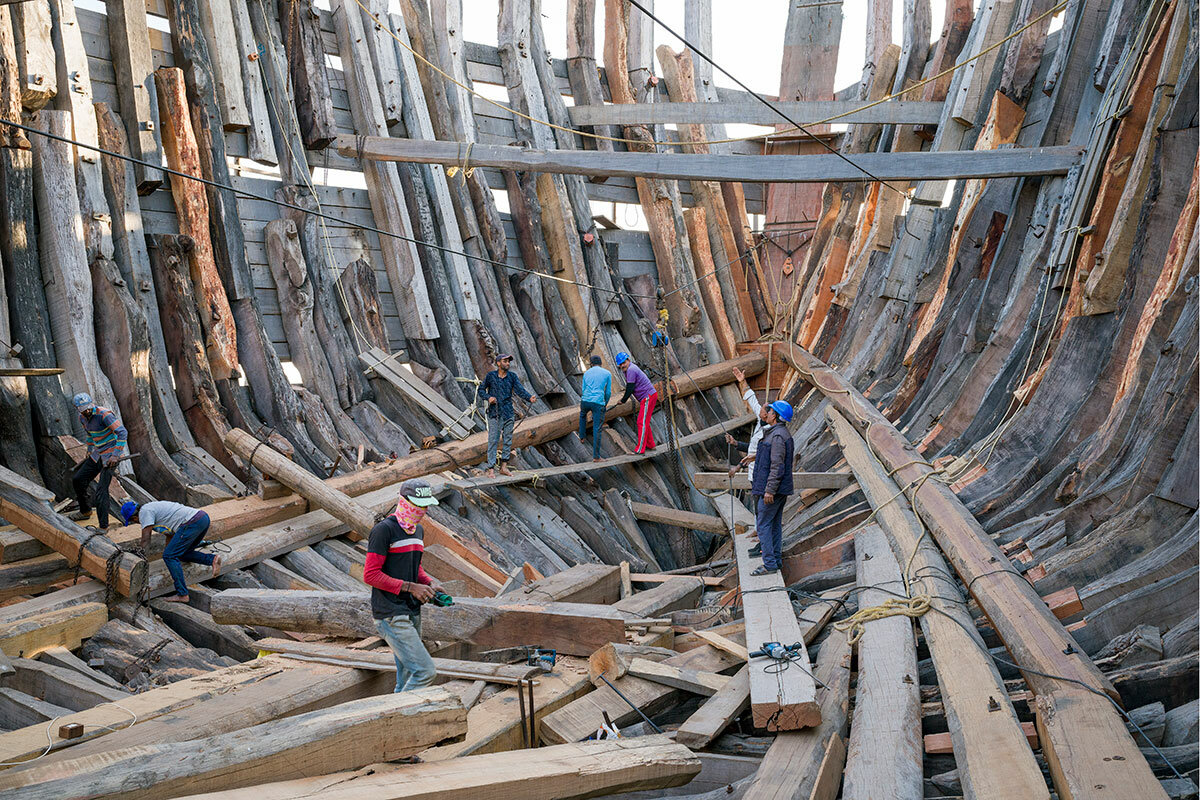
A look ahead
Thank you for joining us today. Tomorrow, we’ll take a further look into the upcoming election in Taiwan, which will be hugely important for maintaining the island’s independence from China. We’ll also explore how Texas is trying to address a new wave of the opioid crisis.
Please come back tomorrow to take a look.



